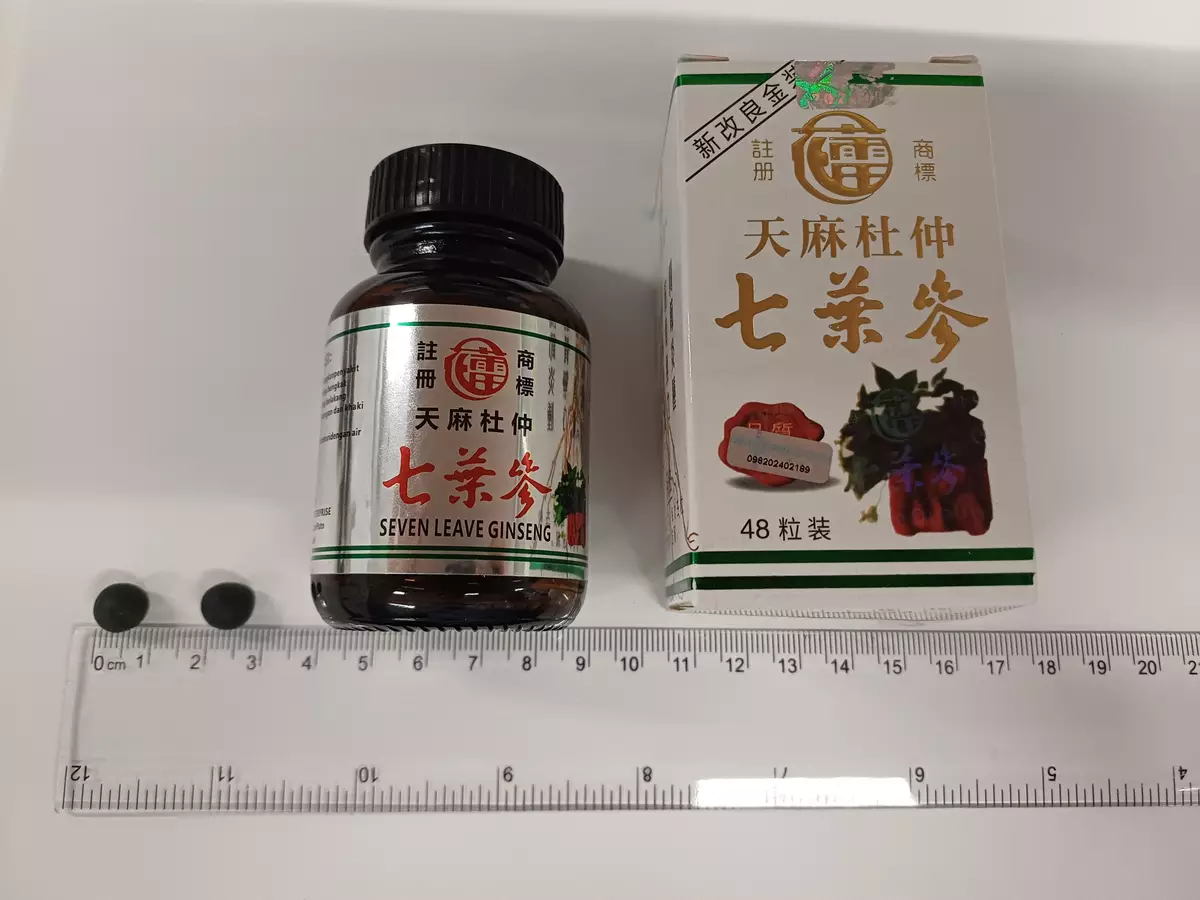CHP investigates case of Legionnaires' disease in United Christian Hospital
The Centre for Health Protection (CHP) of the Department of Health is today (November 29) investigating a case of Legionnaires' disease (LD) in United Christian Hospital (UCH).
The male patient, aged 75 with underlying illnesses, was first admitted to the UCH on October 5. After being transferred to Haven of Hope Hospital on October 9, he was re-admitted to UCH on November 12. He developed desaturation and pneumonia on November 23. His condition deteriorated and he eventually succumbed on November 25.
His sputum specimen tested positive for Legionella pneumophila serogroup 1 DNA upon laboratory testing. As the patient had been admitted to UCH throughout the incubation period, it was initially suspected to be a nosocomial infection.
"Epidemiological investigations with the UCH are ongoing to identify potential sources of infection, high-risk exposure and clusters, if any. Relevant water samples and environmental swabs have been collected from potential sources for laboratory testing," a spokesman for the CHP said.
The CHP and the UCH are working together in tracing contacts including staff and in-patients in the relevant ward, and those identified will be put under medical surveillance. The CHP has provided health advice against LD to staff and in-patients, including those with weakened immunity who should use sterile or boiled water for drinking, tooth brushing and mouth rinsing. The CHP has immediately requested suspension of affected outlets in the ward until installation of effective water filters against legionella at the concerned outlets. The water supply system of the subject ward will be disinfected urgently. The investigation is ongoing.
Legionellae are found in various environmental settings and grow well in warm water (20 to 45 degrees Celsius). They can be found in aqueous environments such as water tanks, hot and cold water systems, cooling towers, whirlpools and spas, water fountains and home apparatus which support breathing. People may become infected when they breathe in contaminated droplets (aerosols) and mist generated by artificial water systems, or when handling garden soil, compost and potting mixes.
Immunocompromised persons should:
Use sterile or boiled water for drinking, tooth brushing and mouth rinsing;
Avoid using humidifiers, or other mist- or aerosol-generating devices. A shower may also generate small aerosols; and
If using humidifiers, or other mist- or aerosol-generating devices, fill the water tank with only sterile or cooled freshly boiled water, and not water directly from the tap. Also, clean and maintain humidifiers/devices regularly according to manufacturers' instructions. Never leave stagnant water in a humidifier/device. Empty the water tank, wipe all surfaces dry, and change the water daily.
The public should observe the health advice below:
Observe personal hygiene;
Do not smoke and avoid alcohol consumption;
Strainers in water taps and shower heads should be inspected, cleaned, descaled and disinfected regularly or at a frequency recommended by the manufacturer;
If a fresh-water plumbing system is properly maintained, it is not necessary to install domestic water filters. Use of water filters is not encouraged as clogging occurs easily, which can promote growth of micro-organisms. In case water filters are used, the pore size should be 0.2 micrometres (µm) and the filter needs to be changed periodically according to the manufacturer's recommendations;
Drain and clean water tanks of buildings at least quarterly;
Drain or purge for at least one minute infrequently used water outlets (e.g. water taps, shower heads and hot water outlets) and stagnant points of the pipework weekly or before use;
Seek and follow doctors' professional advice regarding the use and maintenance of home respiratory devices and use only sterile water (not distilled or tap water) to clean and fill the reservoir. Clean and maintain the device regularly according to the manufacturer's instructions. After cleaning/disinfection, rinse the device with sterile water, cooled freshly boiled water or water filtered with 0.2 µm filters. Never leave stagnant water in the device. Empty the water tank, keep all surfaces dry, and change the water daily; and
When handling garden soil, compost and potting mixes:
Wear gloves and a face mask;
Water gardens and compost gently using low pressure;
Open composted potting mixes slowly and make sure the opening is directed away from the face;
Wet the soil to reduce dust when potting plants; and
Avoid working in poorly ventilated places such as enclosed greenhouses.
The public may visit the CHP'sLD page, theCode of Practice for Prevention of LDand theHousekeeping Guidelines for Cold and Hot Water Systems for Building Managementof the Prevention of LD Committee, and the CHP'srisk-based strategyfor prevention and control of LD.
Public urged not to buy or consume oral product labelled "Tian Ma Tu Chung Seven Leave Ginseng"
The Department of Health (DH) today (November 29) conducted a joint operation with the Police at a premises in Sai Ying Pun suspected of illegal sale of Part 1 Poison and unregistered pharmaceutical product, and arrested a man aged 66 years for suspected illegal sale of Part 1 poison and unregistered pharmaceutical product. The DH appealed to the public not to buy or consume an oral product labelled "TIAN MA TU CHUNG SEVEN LEAVE GINSENG" as shown in the photo, as it is suspected of containing undeclared controlled drug ingredients.
"The DH received information that a premises of Listed Seller of Poisons (commonly known as medicine store) in Sai Ying Pun was suspected of selling the above product and immediately took follow-up action by purchasing a product sample from the premises concerned for analysis. The laboratory test results revealed that the product sample contained diclofenac, terbinafine and paracetamol. The first two substances are Part 1 poisons under the Pharmacy and Poisons Ordinance (Cap. 138) (PPO), while paracetamol, when contained in pharmaceutical products, is Part 2 poison under the PPO. The product is also suspected of being an unregistered pharmaceutical product," a spokesman for the DH said.
The DH will continue to follow up and investigate the incident.
Diclofenac is a non-steroidal anti-inflammatory drug for pain relieve. Its side effects include gastrointestinal discomfort, nausea and peptic ulcer. Terbinafine is an antifungal drug. Its side effects include nausea,diarrhoea and abdominal pain. Products containing diclofenac and terbinafine for oral consumption are prescription medicines that should only be used under a doctor's directions and be supplied in the premises of an Authorized Seller of Poisons (i.e. pharmacy) under the supervision of a registered pharmacist upon a doctor's prescription. On the other hand, paracetamol is for pain relieve and an antipyretic. Overdose can result in severe liver damage. Pharmaceutical products containing paracetamol are Part 2 poisons that should only be supplied in a pharmacy or medicine store.
"According to the Ordinance, all pharmaceutical products must be registered with the Pharmacy and Poisons Board of Hong Kong before they can be sold in the market. Illegal sale or possession of unregistered pharmaceutical products or Part 1 poisons, and illegal sale of Part 2 poisons are criminal offences. The maximum penalty for each offence is a fine of $100,000 and two years' imprisonment. Upon completion of the investigation, the DH will seek advice from the Department of Justice on prosecution matters and will also refer the case to the Pharmacy and Poisons Board of Hong Kong for any necessary disciplinary action," the spokesman said.
The DH spokesman strongly urged members of the public not to buy or consume products of doubtful composition or from unknown sources. All registered pharmaceutical products should carry a Hong Kong registration number on the package in the format of "HK-XXXXX". The safety, quality and efficacy of unregistered pharmaceutical products are not guaranteed.
"People who have purchased the product concerned should stop consuming it immediately and consult healthcare professionals if in doubt or if they feel unwell after consumption. They may submit the product to the Drug Office of the DH at Room 1804-06, 18/F, Wing On Kowloon Centre, 345 Nathan Road, Kowloon, during office hours for disposal," the spokesman said.

Public urged not to buy or consume oral product labelled "Tian Ma Tu Chung Seven Leave Ginseng" Source: HKSAR Government Press Releases





